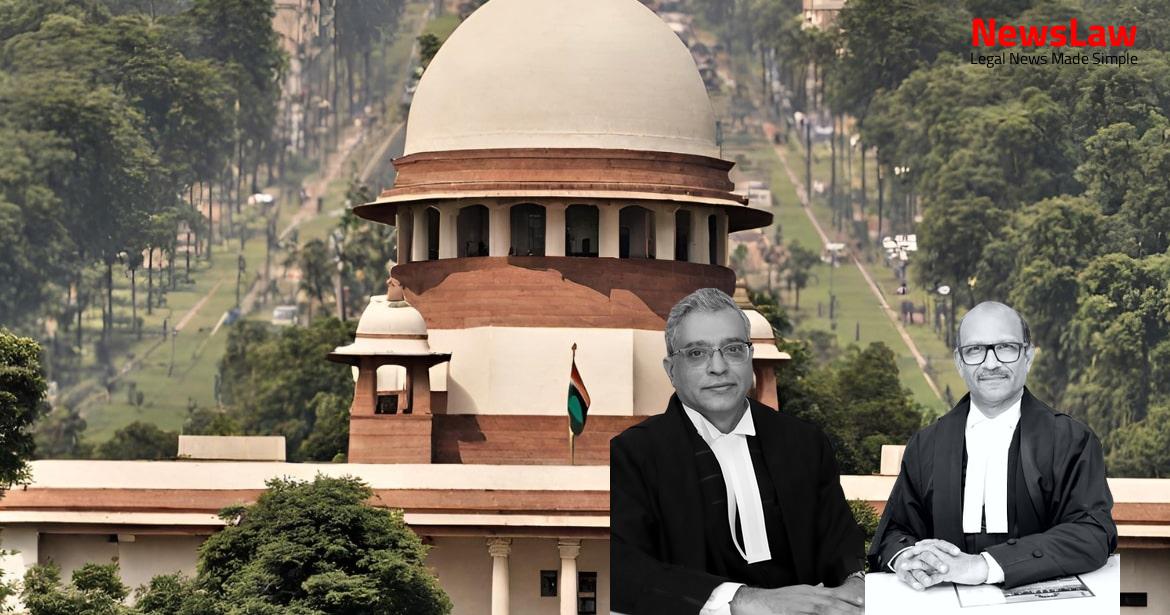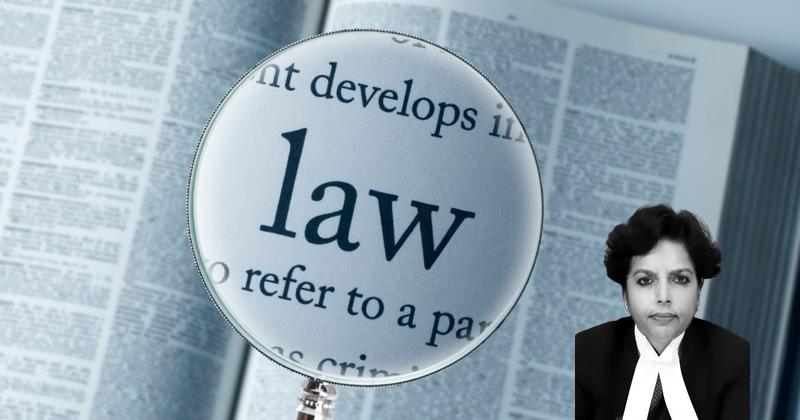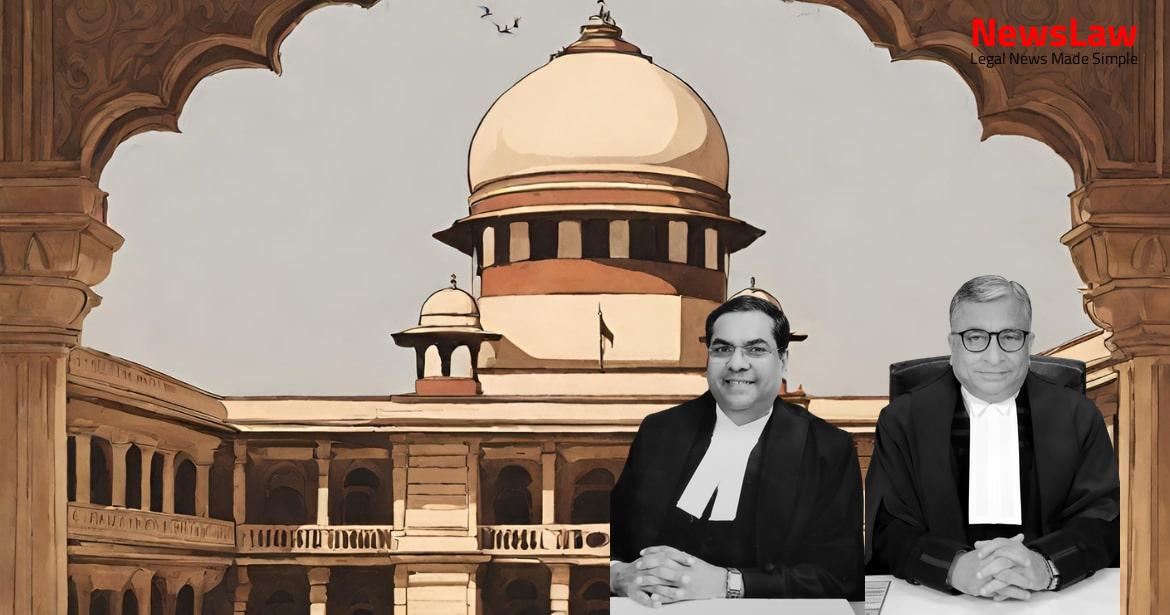A significant legal battle unfolded in the Supreme Court of India regarding the quashing of FIR and chargesheet. The case involved intricate arguments made by the counsels for the appellants and the State of Maharashtra. Learn more about this pivotal judgment and its impact on criminal law proceedings.
Facts
- The complainant filed a complaint on 01.03.2013 alleging threats and deprivation of property by the appellants.
- The FIR was registered on 25.03.2013 against the step mother-in-law, step brother-in-law, father-in-law, and Munim of the complainant.
- The appellants filed a petition under Section 482 of the CrPC to quash the FIR and chargesheet dated 25.03.2013 and 30.07.2013, respectively.
- Appellants no. 1 and 3 deprived the complainant of food, physically assaulted her, and threatened to deprive her and her husband of any share in the property.
- The complainant, her husband, and children left the appellants’ house out of fear and started living in Jalna.
- The accusations include cancellation of the daughter’s education, threats to the complainant’s family, and demand for Rs. 50,00,000 for the future of her children.
- The High Court held that Jalna would have jurisdiction over the case as per Sections 178 and 179 of the CrPC.
- A prima facie case of cruelty under Section 498A was established by the High Court.
- Instances of cruelty were specifically mentioned by the complainant, attributing overt acts to each appellant.
Also Read: Land Dispute: Decree Quashed by the Supreme Court of India
Arguments
- The appellants’ counsels argued that the FIR contains vague and general allegations without specific details.
- They claimed that the complaint lacks material particulars and is obscure in nature.
- The FIR was described as an abuse of the criminal law process due to pre-existing civil disputes between the father and the son.
- Dr. Abhishek Manu Singhvi and Mr. Sidharth Luthra were the senior counsels representing the appellants.
- Mr. Shrirang B Varma appeared as the counsel for the State of Maharashtra.
- Mr. Sanjeev Despande, a senior counsel, represented the second respondent.
- The argument by the learned Senior Counsel for Respondent 2 is that once the charge-sheet is filed, a petition for quashing of the FIR is not viable.
- The court will address this submission first before moving on to other considerations.
- The submission suggests that seeking to quash the FIR after the charge-sheet has been filed may not be legally sustainable according to the learned Senior Counsel for Respondent 2.
Also Read: Supreme Court Judgment on Arbitral Award Dispute
Analysis
- It is observed that the criminal proceedings were instituted with a mala fide intention to harass the appellants.
- The domestic violence complaint was filed alongside multiple FIRs over a period of time, indicating potential abuse of the legal process.
- The allegations in the FIR/complaint lacked specific details and seemed vague and general in nature, emphasizing the need for concrete evidence.
- The Court emphasized the importance of scrutinizing the entire material on record and considering the circumstances leading to the initiation of the case for quashing criminal proceedings under Section 482 of the CrPC.
- The absence of specific role attribution to the accused in the alleged offenses was noted, indicating a lack of clarity in the complaints.
- The items mentioned in the complaints, such as ornaments and property disputes, were used as bases for filing criminal cases, showing a connection between civil and criminal disputes.
- The judgment and order dismissing identical allegations under the Domestic Violence Act further supported the need to reevaluate the criminal proceedings against the appellants.
- The abuse of process caused by FIR is aggravated if it has turned into a charge-sheet after investigation.
- The power is given to prevent abuse of court process.
- Similar views were noted in cases like Joseph Salvaraj A. v. State of Gujarat and Mamta Shailesh Chandra v. State of Uttarakhand.
- Sections 498A, 323, 504, 506 read with Section 34 IPC were not found to be made out in the case under consideration.
- Previous cases like Kahkashan Kausar v. State of Bihar highlighted vague and general allegations under Section 498A lacking specifics.
- When invoking jurisdiction under Section 482 CrPC or Article 226 to challenge a frivolous or vindictive FIR, the High Court must carefully examine the allegations.
- The power of the courts to prevent abuse of process is not restricted only to the FIR stage but can be exercised even when a charge-sheet is filed.
- Cases like Mamidi Anil Kumar Reddy v. State of A.P. emphasized the need for specific allegations in complaints and charge-sheets.
- Matrimonial litigation trends have shown increased disaffection leading to misuse of provisions like Section 498-A IPC for personal vendettas.
- Courts should be cautious in exercising jurisdiction under Section 482 of the Code, as seen in cases like Usha Chakraborty v. State of W.B.
- Allegations lacking in particulars and details, as in Neelu Chopra v. Bharti, require scrutiny for their validity and specificity.
- Criminal proceedings cannot continue against the appellants.
- Continuation of proceedings would be an abuse of process of law and travesty of justice.
- Complaint/FIR and chargesheet against the appellants cannot be sustained.
- Jurisdictional issues regarding the Jalna Police Station and Chief Judicial Magistrate are not examined due to the above findings.
Also Read: Judgment by the Supreme Court Of India: Upholding the Principles of Natural Justice
Decision
- The present appeal was allowed and the impugned judgment of the High Court was set aside.
- The FIR dated 25.03.2013 bearing Crime No 81/2013 under Sections 498A, 323, 504, 506 read with Section 34 IPC at P.S. Jalna was quashed.
- The chargesheet dated 30.07.2013 bearing Chargesheet No 123/2013 in the above FIR was quashed.
Case Title: KAILASHBEN MAHENDRABHAI PATEL Vs. THE STATE OF MAHARASHTRA (2024 INSC 737)
Case Number: Crl.A. No.-004003-004003 – 2024



